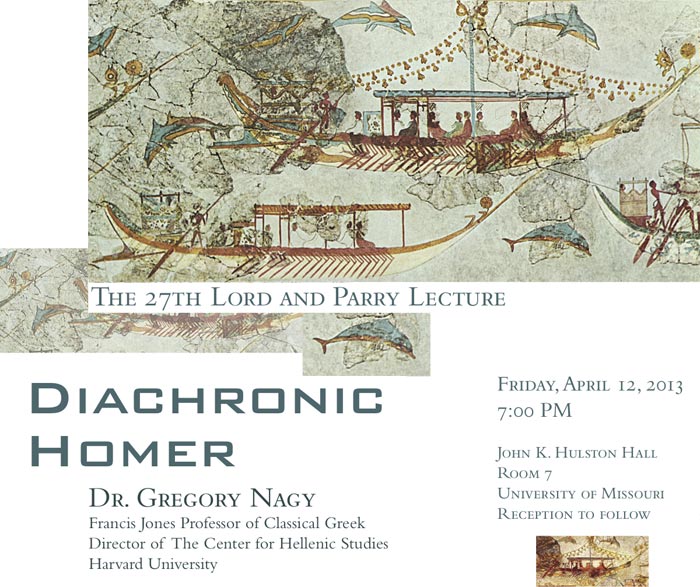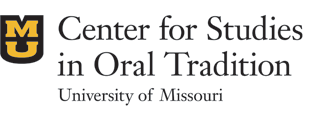
Gregory Nagy delivers 27th Lord and Parry Lecture
On Friday, April 12th, 2013 Gregory Nagy will offer the 27th Albert Lord and Milman Parry Lecture at the University of Missouri. The title of his talk, to be delivered at 7:00 pm in Room 7, Hulston Hall, is “Diachronic Homer” [abstract]. The lecture is sponsored by the Center for Studies in Oral Tradition.
Professor Nagy is a renowned authority in the field of Homeric and related Greek studies. His numerous honors include a Guggenheim Fellowship and the Goodwin Award of Merit of the American Philological Association for his book, The Best of the Achaeans (1979). In addition to this path-breaking work, he has published Greek Dialects and the Transformation of an Indo-European Process (1970), Comparative Studies in Greek and Indic Meter (1974), Pindar’s Homer: The Lyric Possession of an Epic Past (1990), Greek Mythology and Poetics (1990), Poetry as Performance: Homer and Beyond (1996), Homeric Questions (1996) Plato's Rhapsody and Homer's Music (2002), Homeric Responses (2004), and Homer's Text and Language (2004).
Abstract
Diachronic Homer
In this lecture, the kaleidoscopic world of Homer and Homeric poetry will be explored from an evolutionary point of view. When linguists use the word “diachronic” in analyzing a given structure, they are thinking of that structure as it evolves through time. From a diachronic perspective, the structure that we know as Homeric poetry can be viewed, I argue, as an evolving medium. But there is more to it. When you look at Homeric poetry from a diachronic perspective, you will see not only an evolving medium of oral poetry. You will see also a medium that actually views itself diachronically. In other words, Homeric poetry demonstrates aspects of its own evolution. A case in point is the “Cretan Odyssey,” as reflected in the “lying tales” of Odysseus in the Odyssey. These tales, as we will see, give the medium an opportunity to open windows into an Odyssey we do not know. In the alternative universe of this “Cretan Odyssey,” the adventures of Odysseus take place in the exotic context of Minoan-Mycenaean civilization.


